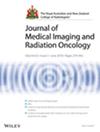Real-World Long-Term Outcomes of Operated and Non-Operated Rectal Cancer in the Elderly: A 14-Year Retrospective Multicentre Study
Abstract
Objective
Surgical resection is the cornerstone of rectal cancer treatment. Following neoadjuvant chemoradiotherapy (nCRT), many patients undergo surgery. Another group of patients may not undergo surgery for various reasons, regardless of nCRT response. This study investigates the differences in clinical characteristics and long-term oncological outcomes of operated and non-operated elderly rectal cancer patients.
Methods
This multicentre observational retrospective cohort analysis included 296 elderly patients (169 surgery, 127 non-surgical) treated at three tertiary cancer centres in Turkey between January 2010 and April 2024. Clinicopathologic features and survival outcomes were compared between groups.
Results
Patients in the surgery group were younger (p < 0.000) and had better performance scores (p < 0.000). There were no differences in initial clinical (c) T stages or cM stages; however, cN2 patients were more prevalent in the surgical group and cN1 patients were more prevalent in the non-surgical group (p = 0.010). No differences in radiotherapy treatment schedules were observed among the groups. The surgical group received more concurrent (p = 0.046) and adjuvant (p < 0.000) chemotherapy. Patient refusal (63.8%) was the most common reason among non-surgical patients. The surgery group showed better overall survival (OS) (median, 99 vs. 33 months) (p < 0.000), local recurrence-free survival (LRFS) (97.8% vs. 65.8% at 3 years, p < 0.000), and distant metastasis-free survival (DMFS) (80.3% vs. 73.3% at 3 years, p = 0.022).
Conclusion
This study shows that elderly rectal cancer patients without surgery had poor survival and tumour control. Surgical resection in rectal cancer is very important and should be strongly recommended for all medically suitable elderly patients.

 求助内容:
求助内容: 应助结果提醒方式:
应助结果提醒方式:


